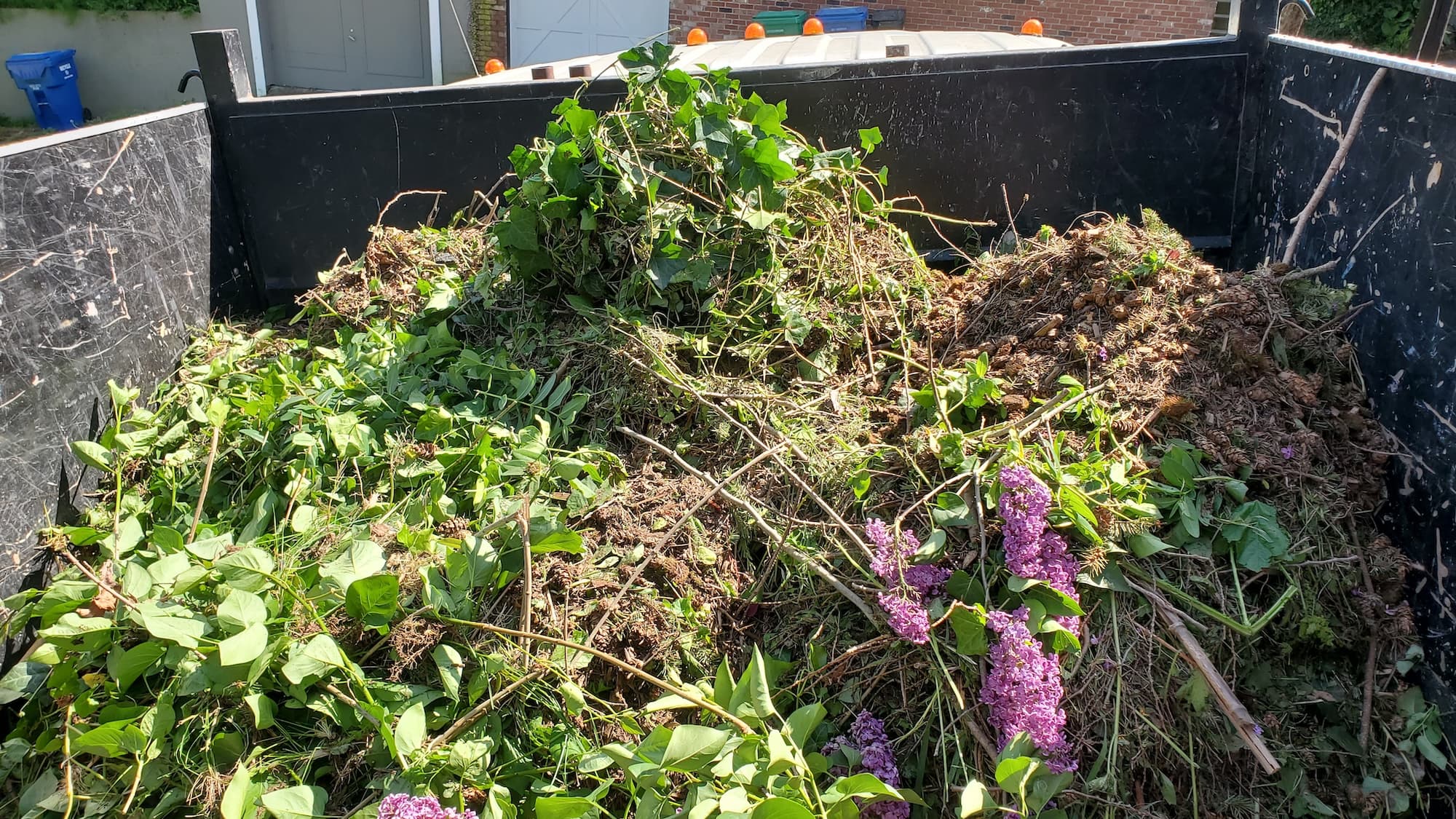West Seattle Poison Ivy Removal
Homeowner’s Issue
Poison ivy shows up in predictable places around West Seattle: shady north-facing slopes behind homes in Admiral, the bluff edges near Alki, and damp fence lines in Fauntleroy and Delridge. Our soils range from compacted glacial till in the uplands to wind-blown sandy topsoil and loamy pockets near ravines; that mix means poison ivy can root deep on slopes and re-sprout from fragments. Rainfall is heavy from October through May, which favors early spring flushes of new shoots and encourages moss and English ivy to compete in shaded beds. Summer drought stresses natives, pushing homeowners to overwater small shrubs and unintentionally encourage root regrowth from buried vine pieces.
HOA rules, curb appeal, and tight property lines in many West Seattle blocks mean removal must be neat and documented — neighbors notice. Left untreated, poison ivy spreads along hedgerows, up trees, and into play areas. Our approach accounts for salt spray near Alki, steep grade erosion risks in Lincoln Park-adjacent lots, and Seattle Water Department summer watering advisories. We focus on hands-on, sustainable techniques that protect soil and surrounding native plants while reducing future maintenance needs for owners who want a clean, safe yard without chemicals.
Our Quality Service
We remove poison ivy by hand and mechanical means only — no herbicides. Our crew uses hand tools, loppers, root saws, pry bars, tarps, and compost-grade bags to extract roots, isolate vines, and protect surrounding plants. On steeper banks we install erosion controls (straw, jute mat, native plugs) to keep soil stable. Typical timelines: small patches 1–3 hours, average yard half to full day, larger infestations a multi-day plan with scheduled follow-ups.
We schedule work to avoid wet-mud instability, follow Seattle water advisories for post-planting care, and recommend native replacements suited to West Seattle microclimates. Benefits: safer yards for families and pets, improved curb appeal, lower long-term maintenance, and lasting results without synthetic chemicals.
What’s Included
- Site assessment and mapped treatment plan.
- Full manual removal: vine cut, root extraction, and targeted digging.
- Secured bagging and haul-away or green-bin disposal per client choice.
- Light bed refresh: edging and a 2–3” organic mulch layer around remaining plants.
- Two follow-up checks within 6 months to catch regrowth.
Options / Upgrades:
- Mulch + landscape fabric under paths (where appropriate).
- Smothering/solarization of stubborn patches (cardboard + heavy mulch).
- Native replacement plants (salal, sword fern, vine maple, ocean spray).
- Haul-away vs. green-bin sorting (we follow local disposal rules).
Before & After / Expectations
Work creates noise and plant debris; expect muddy boots and tarps on site. We protect walkways and nearby beds, but some soil disturbance is unavoidable when digging roots. Re-growth can occur from missed root fragments — that’s why we include follow-ups and recommend native groundcovers to shade out return shoots.
Care tips for West Seattle:
- Watch for spring flushes after heavy winter rains and book follow-up checks in April–June.
- New native plantings need careful summer watering in dry spells, ideally early morning or late evening per city guidelines.
- On shady, moss-prone slopes, remove ivy roots and plant shade-tolerant natives to prevent re-infestation.
FAQs
- Do you use herbicides? No. We use manual removal and smothering/solarization only.
- Will it come back? Possibly. Small root fragments can resprout; our follow-ups catch most returns.
- Is it safe for pets and kids? We remove and bag plants to reduce exposure; avoid the treated area until debris is gone.
- How long will a service take? Small areas 1–3 hours; typical yards half to full day. Access and slope affect timing.
- Do you compost removed vines? We follow local disposal rules — we can green-bin eligible material or haul-away to avoid compost contamination.
Call to Action
West Seattle homeowners: if poison ivy is crowding your yard or a neighbor’s property edge, book a free estimate. We schedule quickly, work clean, and use practical, sustainable methods that respect local soils and slopes. Email neatandtidyseattle@gmail.com to get started or to send photos for a fast estimate. Phone: 206-538-9344.










